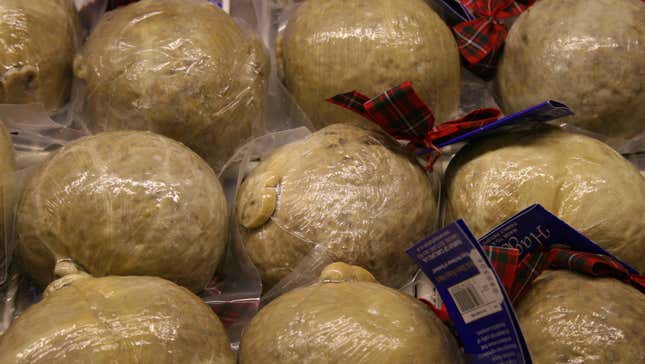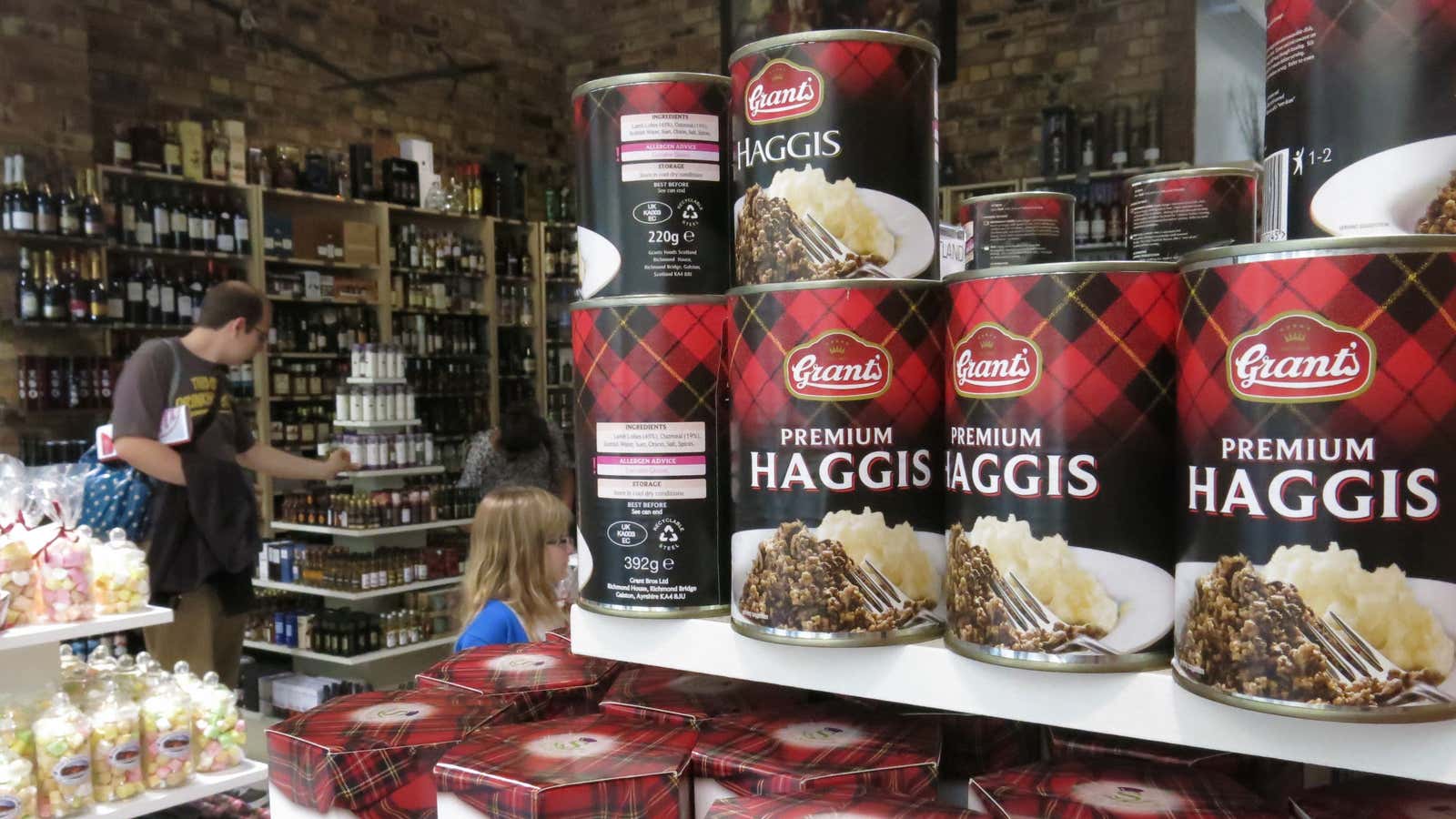Since 1971, the only way for Americans, including millions claiming Scottish ancestry, to get their fix of haggis has been to make it at home. The traditional Scottish dish contains sheep lungs, oats and spices, and has been commercially banned in the US for over four decades due to FDA regulations that outlaw the sale of food containing the lungs of livestock. Scottish companies that make the dish have had their eye on the American market since at least 2010, when a bid to overturn the ban failed. Following another unsuccessful bid in 2014, Scotland’s biggest haggis producers are now talking about changing their recipes to get by US regulations.

Richard Lochhead, the rural affairs secretary of Scotland, is in Washington DC this week, meeting with US officials to work out a compromise that would allow Scottish companies to export their tweaked haggis to the US.
“If we managed to get into that market that would create jobs back here in Scotland, and millions of pounds to the Scottish economy,” Lochhead told the BBC.
Simon Howie, a commercial butcher in Scotland, estimates that the US market would be equivalent to about half of the UK market, which was reported to be around £9 million ($14 million) in 2010. He told the BBC that he was more than willing to leave the lungs out of his recipe, if it meant exporting to the US.
James Macsween of Macsween of Edinburgh, another commercial producer of haggis, told the BCC his company has already come up with a lung-free recipe in anticipation of Lochhead’s success.
But not everyone is on board with this quick fix. Sandy Crombie, a butcher based in Edinburgh, Scotland, said haggis isn’t haggis without the lungs.
“It’s the lungs that make haggis,” he told the Scotsman.
